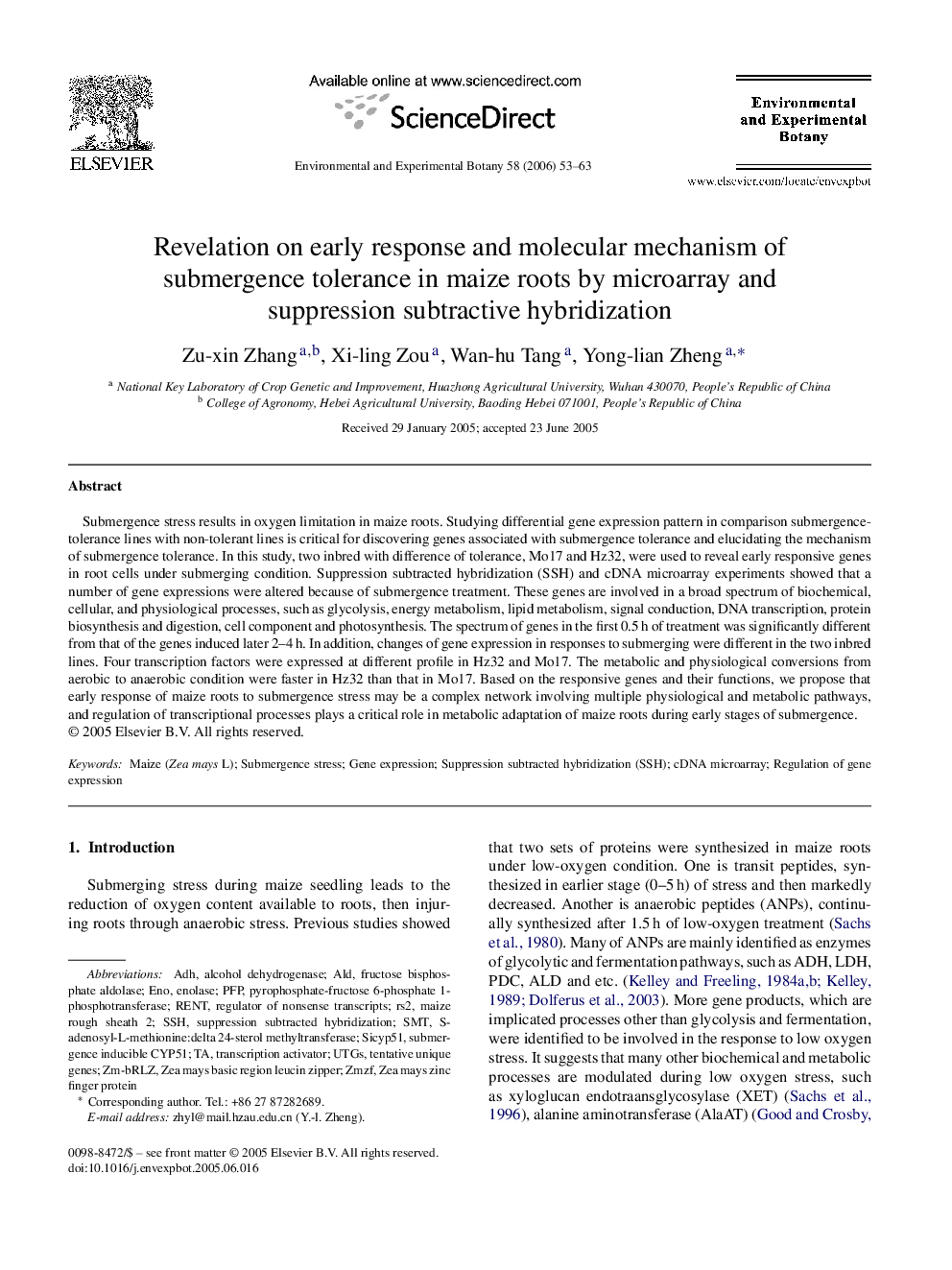| Article ID | Journal | Published Year | Pages | File Type |
|---|---|---|---|---|
| 4555643 | Environmental and Experimental Botany | 2006 | 11 Pages |
Abstract
Submergence stress results in oxygen limitation in maize roots. Studying differential gene expression pattern in comparison submergence-tolerance lines with non-tolerant lines is critical for discovering genes associated with submergence tolerance and elucidating the mechanism of submergence tolerance. In this study, two inbred with difference of tolerance, Mo17 and Hz32, were used to reveal early responsive genes in root cells under submerging condition. Suppression subtracted hybridization (SSH) and cDNA microarray experiments showed that a number of gene expressions were altered because of submergence treatment. These genes are involved in a broad spectrum of biochemical, cellular, and physiological processes, such as glycolysis, energy metabolism, lipid metabolism, signal conduction, DNA transcription, protein biosynthesis and digestion, cell component and photosynthesis. The spectrum of genes in the first 0.5Â h of treatment was significantly different from that of the genes induced later 2-4Â h. In addition, changes of gene expression in responses to submerging were different in the two inbred lines. Four transcription factors were expressed at different profile in Hz32 and Mo17. The metabolic and physiological conversions from aerobic to anaerobic condition were faster in Hz32 than that in Mo17. Based on the responsive genes and their functions, we propose that early response of maize roots to submergence stress may be a complex network involving multiple physiological and metabolic pathways, and regulation of transcriptional processes plays a critical role in metabolic adaptation of maize roots during early stages of submergence.
Keywords
Related Topics
Life Sciences
Agricultural and Biological Sciences
Ecology, Evolution, Behavior and Systematics
Authors
Zu-xin Zhang, Xi-ling Zou, Wan-hu Tang, Yong-lian Zheng,
